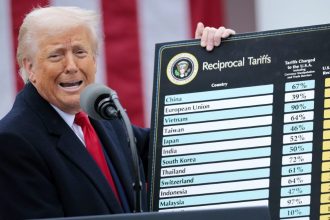Political unrest and dollar smuggling to Afghanistan are pressuring the Pakistani rupee.
Pakistan faces multiple problems, the political crisis being the biggest. However, the dollar crisis is also related, said Malik Bostan, chairman of ECAP.
About $2 billion goes to Afghanistan from Pakistan through official and unofficial trade, smuggling, and the borders, said Bostan, burdening Pakistan’s foreign exchange reserves.
The growing Afghan transit trade is harming Pakistan’s economy irreparably. He said that Afghan and Pakistani traders are involved in this anti-national activity.
The government imposed high duties on luxury goods to lower import costs.
Boston said they operate a global network, accepting payments through hundi/hawala in Dubai, London, Europe, America, Saudi Arabia, and everywhere else.
They bring their goods to our port in the name of Afghan transit, traveling to Afghanistan and back in small trucks. He said that many Pakistani importers participate in this barbaric practice, which costs the national exchequer billions of rupees and prevents dollars from entering the country.
In August 2021, when the Afghan Taliban established a transition government, the Pakistani rupee was 155, the country had $22 billion in foreign exchange reserves, and its import bill was $4.5 billion. Bostan says the rupee has fallen to 225 in the interbank market and 235 in the free market.
He said monthly remittances to Pakistan total $3 billion. Remittances are $2 billion. “Where does $1 billion go monthly?” Because we pay 225 rupees per dollar for remittances, $1 billion per month is Afghan transit. Chairman: “Hawala/hundi operators give 270 for every dollar.”
Bostan said exchange companies have money transfer agreements with only three international companies. Bostan asked SBP to let exchange companies negotiate partnerships with 50 global money transfer firms.
“Exchange companies receive about $2 billion in worker remittances annually and provided $3 billion to Pakistani banks last year. In addition, he said that selling on the interbank market exchange companies helps stabilize Pakistan’s reserve, the rupee, and the economy.
If the government allows 50 international money transfer companies to work with us, they can bring $7 to $8 billion to Pakistan annually.






